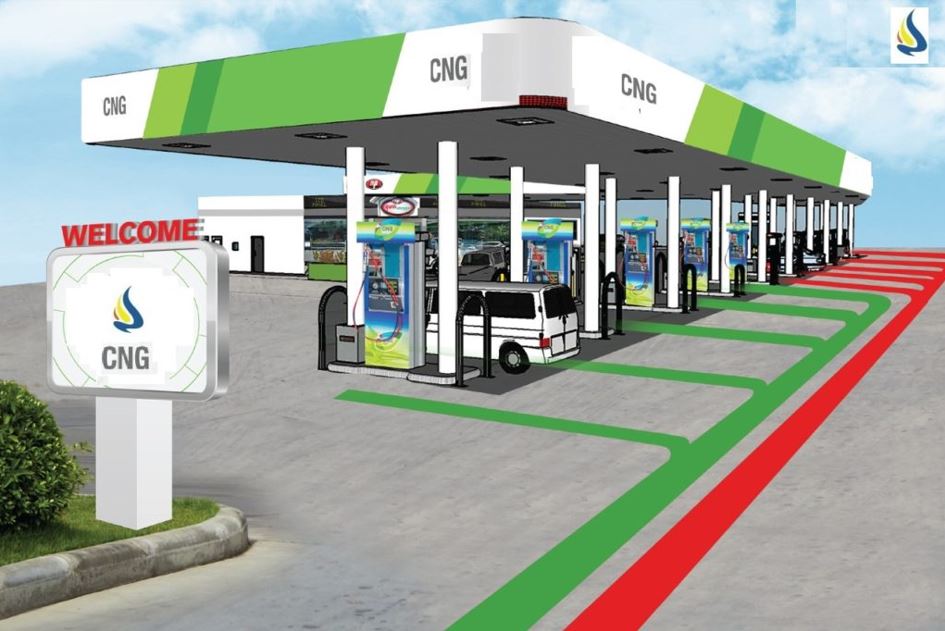CNG and the Nigerian Logistics Industry: A Greener Future Hinges on Knowledge and Data

Transitioning to CNG in Nigeria’s logistics and supply chain industry
In recent years, Compressed Natural Gas (CNG) has emerged globally as a viable alternative fuel, offering a cleaner, safer, and more cost-effective option for powering vehicles. For Nigeria, a country grappling with rising fuel costs, environmental concerns, and a heavily burdened logistics sector, the adoption of CNG can be a game changer.
What is CNG?
The U.S. Department of Energy’s Alternative Fuels Data Center states: “CNG is produced by compressing natural gas to less than 1% of its volume at standard atmospheric pressure”. It is stored and distributed in high-pressure tanks and used as a fuel for vehicles in place of petrol or diesel.
According to the Nigerian Midstream and Downstream Petroleum Regulatory Authority (NMDPRA), Nigeria holds over 206 trillion cubic feet of natural gas reserves, a largely untapped resource that can power our transportation industry more sustainably and affordably.
Why Nigeria needs CNG in the Logistics and Supply Chain Sector
The logistics and transportation industry in Nigeria faces significant operational challenges:
High fuel costs due to fluctuating global oil prices
Environmental degradation from emissions-heavy fleets
Poor vehicle maintenance culture and inefficient fleet management
Rising pressure to meet ESG (Environmental, Social, and Governance) goals
Switching to CNG addresses many of these challenges. Benefits include:
· Cost Savings: CNG costs significantly less than petrol or diesel, up to 40–60% savings per litre (according to reports from the Presidential Initiative on CNG).
· Cleaner Emissions: CNG reduces carbon monoxide emissions by 80%, nitrogen oxide by 50%, and nearly eliminates particulate matter, making it a powerful tool in combating urban air pollution (World Bank, 2023).
· Engine Efficiency & Longevity: Vehicles running on CNG experience less wear and tear, which reduces maintenance costs and extends engine life.
· Energy Security: With abundant domestic reserves, Nigeria can reduce its reliance on imported refined petroleum products.
The Role of Professional Drivers and the Urgent Need for Awareness and Training
The success of any CNG transition depends on people, especially the professional drivers and riders who operate within Nigeria’s vast logistics and delivery network.
Today, many Nigerian drivers are unaware of the advantages or handling requirements of CNG-powered vehicles. There’s a critical need for mass orientation, practical training, and behavioural change programs.
These should include:
CNG vehicle maintenance and safety protocols
Basic conversion kit knowledge
Understanding fueling infrastructure and availability
Driving efficiency and sustainability practices
Enter the Comprehensive Drivers and Riders Data Bank (CDRDB) by DBS LTD
One tool that stands out in driving this awareness is the Comprehensive Drivers and Riders Data Bank (CDRDB), developed by DBS LTD (www.driversbureau.org).
The CDRDB is a smart driver-management platform that consolidates verifiable records of professional drivers and riders across Nigeria. It offers:
🔹 Structured training modules for safe driving and fuel-efficient practices
🔹 Behavioural profiling and driver assessments
🔹 Integration with CNG training curricula and conversion readiness tracking
🔹 A national repository to drive policy and intervention decisions
Through partnerships with private companies and government agencies, the CDRDB enables targeted orientation programs and ensures that only trained, verified drivers are onboarded into fleets using CNG technology.
This is especially vital for ride-hailing platforms, logistics firms, delivery networks, and transport unions looking to future-proof their workforce and operations.
The Road Ahead
Transitioning to CNG in Nigeria’s logistics and supply chain industry isn’t just an environmental imperative; it’s an economic and operational opportunity. But without the right awareness, data, and training infrastructure, the transition will stall.
Platforms like the CDRDB by DBS LTD are key enablers of this green revolution. Let’s build a future where our roads are cleaner, our fleets are smarter, and our drivers are empowered with the knowledge to drive Nigeria forward.
“Fueling a better tomorrow starts with training the hands that drive today.”
Sources:
NMDPRA – www.nmdpra.gov.ng
World Bank Environmental Report on Nigeria, 2023
Presidential Initiative on CNG, Federal Ministry of Petroleum Resources
If you're a stakeholder in the Nigerian logistics, transport, or delivery ecosystem, now is the time to engage. Let's talk about how your drivers, riders, and operations can benefit from the CDRDB and CNG training partnerships.
Connect with me or follow DBS LTD to stay informed
20a Godwin Way, Ire-Akari Estate, Isolo, Lagos
www.driverbureau.org, dbslimited2023@gmail.com.